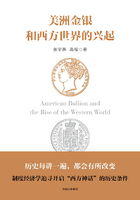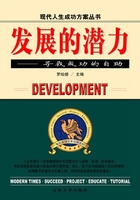And yet, provided this metaphysical comparison be not drawn, any one may, according to your authors, give away a benefice, and receive money in return for it, without being guilty of simony.Such is the way in which you sport with religion, in order to gratify the worst passions of men; and yet only see with what gravity your Father Valentia delivers his rhapsodies in the passage cited in my letters.He says: "One may give a spiritual for a temporal good in two ways- first, in the way of prizing the temporal more than the spiritual, and that would be simony; secondly, in the way of taking the temporal as the motive and end inducing one to give away the spiritual, but without prizing the temporal more than the spiritual, and then it is not simony.And the reason is that simony consists in receiving something temporal as the just price of what is spiritual.If, therefore, the temporal is sought- si petatur temporale- not as the price, but only as the motive determining us to part with the spiritual, it is by no means simony, even although the possession of the temporal may be principally intended and expected- minime erit simonia, etiamsi temporale principaliter intendatur et expectetur." Your redoubtable Sanchez has been favoured with a similar revelation; Escobar quotes him thus: "If one give a spiritual for a temporal good, not as the price, but as a motive to induce the collator to give it, or as an acknowledgement if the benefice has been actually received, is that simony? Sanchez assures us that it is not." In your Caen Theses of 1644 you say: "It is a probable opinion, taught by many Catholics, that it is not simony to exchange a temporal for a spiritual good, when the former is not given as a price." And as to Tanner, here is his doctrine, exactly the same with that of Valentia; and I quote it again to show you how far wrong it is in you to complain of me for saying that it does not agree with that of St.Thomas, for he avows it himself in the very passage which I quoted in my letter: "There is properly and truly no simony," says he, "unless when a temporal good is taken as the price of a spiritual;but when taken merely as the motive for giving the spiritual, or as an acknowledgement for having received it, this is not simony, at least in point of conscience." And again: "The same thing may be said, although the temporal should be regarded as the principal end, and even preferred to the spiritual; although St.Thomas and others appear to hold the reverse, inasmuch as they maintain it to be downright simony to exchange a spiritual for a temporal good, when the temporal is the end of the transaction."Such, then, being your doctrine on simony, as taught by your best authors, who follow each other very closely in this point, it only remains now to reply to your charges of misrepresentation.You have taken no notice of Valentia's opinion, so that his doctrine stands as it was before.But you fix on that of Tanner, maintaining that he has merely decided it to be no simony by divine right; and you would have it to be believed that, in quoting the passage, I have suppressed these words, divine right.This, fathers, is a most unconscionable trick; for these words, divine right, never existed in that passage.You add that Tanner declares it to be simony according to positive right.But you are mistaken; he does not say that generally, but only of particular cases, or, as he expresses it, in casibus a jure expressis, by which he makes an exception to the general rule he had laid down in that passage, "that it is not simony in point of conscience,"which must imply that it is not so in point of positive right, unless you would have Tanner made so impious as to maintain that simony, in point of positive right, is not simony in point of conscience.But it is easy to see your drift in mustering up such terms as "divine right, positive right, natural right, internal and external tribunal, expressed cases, outward presumption," and others equally little known; you mean to escape under this obscurity of language, and make us lose sight of your aberrations.
同类推荐
Locrine - A Tragedy
本书为公版书,为不受著作权法限制的作家、艺术家及其它人士发布的作品,供广大读者阅读交流。汇聚授权电子版权。
热门推荐
神秘的人体(探索宇宙奥秘系列丛书)
宇宙,是这个世界上谜团最多的地方,也是最吸引孩子好奇心的地方。宇宙包含着最神秘的未知和疑问,人类正在以高超的科学手段和不懈的努力不断深入探索宇宙的深处,希望了解人类自身的过去与未来。而地球是我们人类赖以生存的家园。在漫长的岁月中,人类一直在这个星球上繁衍生息。虽然它只是太阳系中一颗普通的行星,但它在许多方面却又是独一无二的:它是太阳系中唯一一颗表面大部分被水覆盖的行星,也是目前所知唯一一颗有生命存在的星球……《探索宇宙奥秘系列丛书》向孩子们展示这个既熟悉又神奇的世界。美洲金银和西方世界的兴起
把历史的时钟拨回16世纪至18世纪,西欧与中国的社会经济实力并不存在显著差异,可以说还处于同一起跑线上。“西方世界的兴起”这一故事的神话色彩在历代学者卷帙浩繁的研究中愈发浓重,而这本小书只强调一条简单的线索,即西方突飞猛进的发展源于一种偶然因素:美洲金银。1492年哥伦布“发现美洲新大陆”,巨量金银被开采、掠夺并贩运回西欧,迅速和剧烈地引发了财富在社会各阶级之间的重新分配,获利最多的资产阶级得以壮大到与世袭贵族阶层分庭抗礼并跃升为统治集团的组成部分,从而为打破制度的均衡状态奠定了坚实的基础。追妻无门:女boss不好惹
青涩蜕变,如今她是能独当一面的女boss,爱了冷泽聿七年,也同样花了七年时间去忘记他。以为是陌路,他突然向他表白,扬言要娶她,她只当他是脑子抽风,他的殷勤她也全都无视。他帮她查她父母的死因,赶走身边情敌,解释当初拒绝她的告别,和故意对她冷漠都是无奈之举。突然爆出她父母的死居然和冷家有丝毫联系,还莫名跳出个公爵未婚夫,扬言要与她履行婚约。峰回路转,破镜还能重圆吗? PS:我又开新文了,每逢假期必书荒,新文《有你的世界遇到爱》,喜欢我的文的朋友可以来看看,这是重生类现言,对这个题材感兴趣的一定要收藏起来。发展的潜力(大智慧成功方案教程)
怎样面对人生不可避免的缺憾,而不感到缺憾呢?既然躲是一定躲不过去的,那么就勇敢地去面对它吧。孤单不一定不快乐,失去不一定不再有,转身不一定不再回头——勇敢地去面对它,你也许就会发现缺憾的本来面目,你也许就会发现世界的本来面目。人生的旅途并非处处鲜花,而要常常跟不如意结伴而行。疾病缠身、情场失意等缺憾,常常会使人忿忿不平,叹息不止。失去平缓的心态,心理容易发生心理扭曲、变形,不但影响工作情绪和生活质量,而且有害于身心健康。这时,我们就要学会自我安慰。















